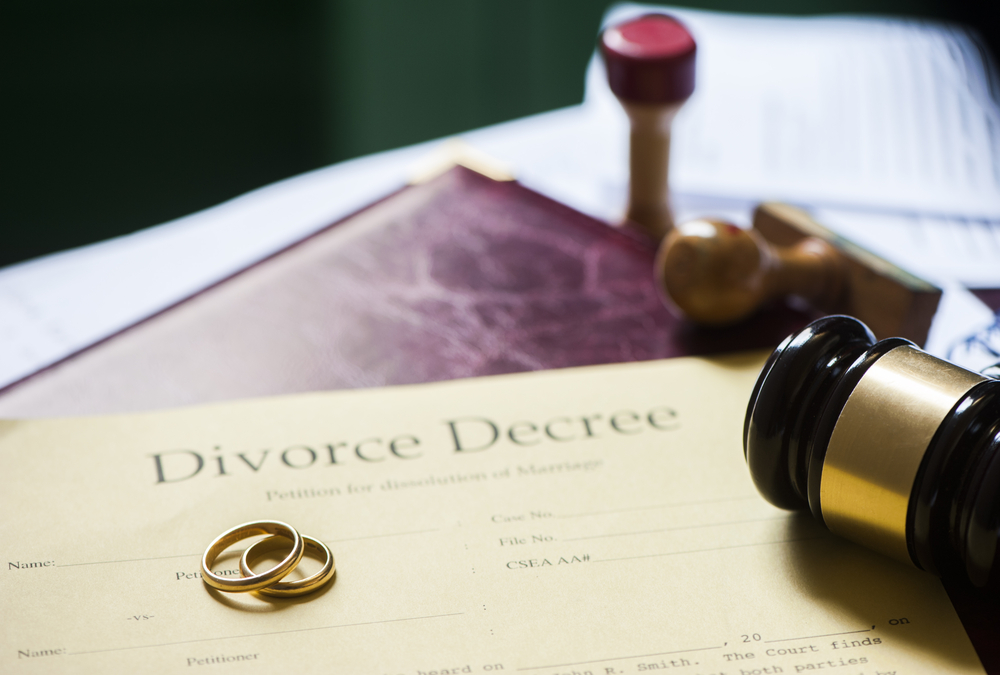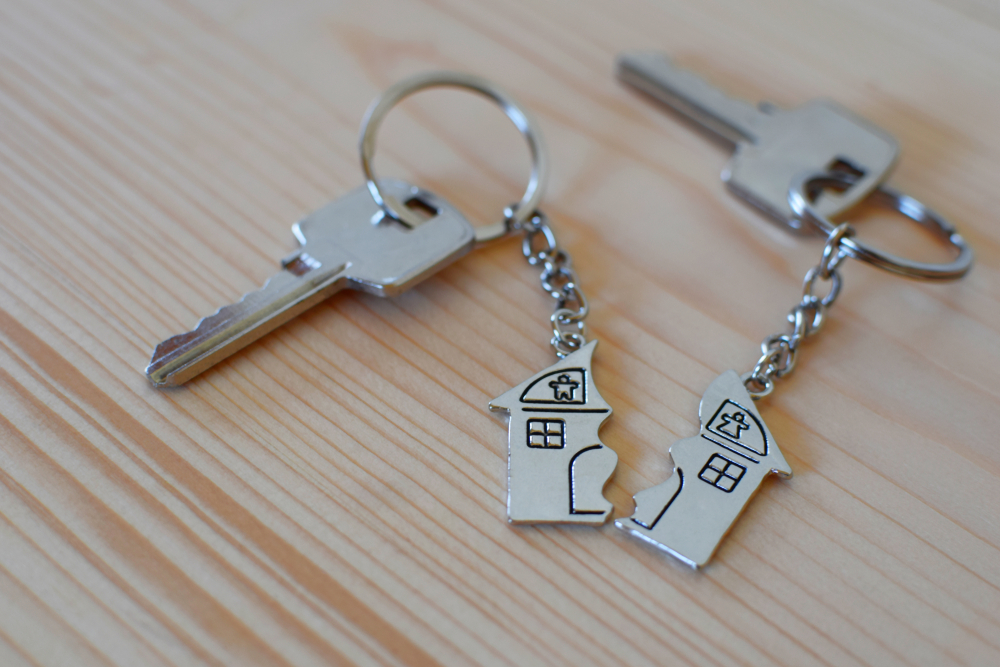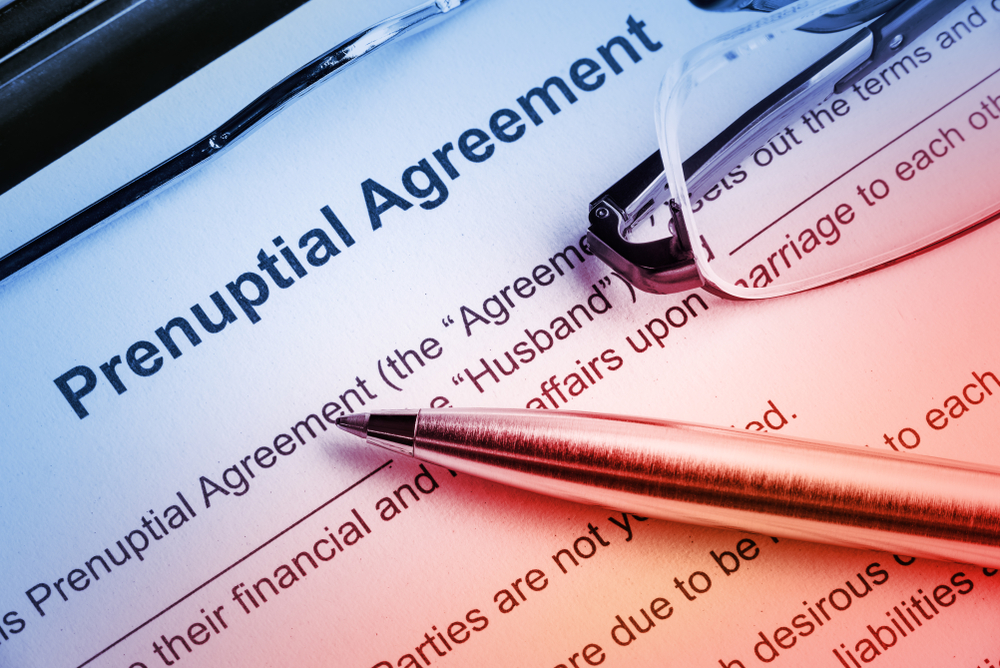Divorce and the eventual separation are always painful and expensive, both in monetary terms and emotional pain.
But why is divorce so expensive in the UK?
Divorce is expensive in the UK due to the sharp increase in legal fees, rising costs of property, and bitter, drawn-out divorce proceedings.
This article will clearly explain the reasons for excessive divorce costs in the UK, including legal fees, property costs, and other factors related to a contested divorce.
If both parties agree on the reason for the divorce, the cost of the divorce is often limited to simple standard fees.
Table of Contents
Standard Fees for Divorce in UK Courts
The cheapest form of divorce is when both parties amicably agree to divorce, otherwise known as a no-contest divorce.

Your solicitor charges a fixed fee for the whole process.
In this case, the orders outline who will have child custody, pay child maintenance, and other maintenance arrangements.
The first step is making an application to kickstart divorce proceedings, also called filing a petition – the initial application to start divorce costs £593 in Wales and England.
Although relatively cheap, you may still incur additional costs, such as needing a replacement marriage certificate or document translation.
Contested Divorce
Things can get pretty expensive if one partner does not agree with the divorce proposal in its current form.
The respondent may oppose the initial application by giving an “answer” on the divorce form to start the contest process.
There are several reasons the respondent may decide to oppose the divorce. Often, it is because you disagree with the reasons your partner listed on the petition.
For example, you may not believe in divorce or believe that the relationship is irreconcilable.
A major reason why this type of divorce is expensive is that both parties hire a solicitor for court representation.
Since the solicitors are unsure how long the case will take, they charge an hourly fee that is more expensive than the fixed rates.

The most expensive divorce in recent history is that of Russian oligarch Farkhad Akhmedov and his ex-wife Tatiana Akhmedova, which dragged on for two years.
He finally settled the £450m payouts as of 2021.
Drastic Increase in Legal Fees
According to statistics, the current divorce cost is £14,561 per couple, £2,129 up from 2014. The biggest contribution to this hike includes a 109% rise in legal fees, 73% in revamping a previously owned home, and a 62% increase in child custody fees.
Expensive Property Acquisition
Aside from the legal fees, separation or divorce has a huge impact on how the spouses and the children will live after the divorce.
Nearly half of the couples who previously owned a home sell the property, causing both parties to find a new home.
Most people find themselves unable to climb back the housing ladder after the family house sale.
Only one in six persons can afford a new house thanks to the skyrocketing property prices in the UK, and even in these circumstances, most have to downgrade to a smaller home.
Other couples who cannot afford a new property find solace in the rental market, which can be pretty demanding considering they previously lived rent-free.
Things also get more expensive since you have to shoulder the cost of everything alone, which wasn’t the case when you had a partner.

High average divorce costs are forcing some couples to opt for informal separation instead of divorce.
Others have remained in unhappy marriages because divorce prices and the subsequent fees will leave the couple knee-deep in a financial quagmire.
Depletion of Savings After Divorce
Suppose you decide to go on with your divorce despite the costs. How does it impact the credit ratings and the savings of the ordinary person?
Some people will see a sharp drop in their lifelong savings, which they have to live on, while the rest rely on friends and family to house them as they get on their feet.
The rest who aren’t so lucky admit to using credit cards which puts them in debt and lowers their credit scores.
What seemed like a leeway to freedom ends up being a debt trap.
Additionally, around 6% of divorcees resort to canceling pension contributions and forfeiting their protection covers to supplement their income after divorce or separation.
The At-Fault System

A contested divorce is usually expensive due to a lack of consensus. For the longest time, the legal process of divorce settlement has been the “at-fault” system, pitting the couples against each other.
This led to fightbacks and legal battles that could drag on for years, crippling both couples financially and benefitting the solicitors.
Remember that each person has a legal team on retainer. Since the solicitors aren’t sure of the outcome, they tend to charge hourly, which is more expensive than a fixed package.
The following reasons hike up divorce costs:
1. Family Assets
Settling property ructions is easier said than done when deciding who to have what. Most couples cannot decide who keeps some family properties like houses.
To avoid this hurdle, you should have a pre and post-nuptial agreement on how to fairly divide the family assets during divorce.
Take the case of a family home, which is often the most important expensive joint asset. Often, both spouses feel entitled to remain on the property.
It is usually quite challenging to decide who stays and how to compensate the spouse who has been “bought out.”

Children don’t make things any easier because they need a place to stay. Children’s needs are always given an important position during the allocation, including residence.
Other examples include joint pension and investment products whose true value must be decided before the settlement.
2. Family business
Divorces involving family businesses require long and careful negotiations to determine everyone’s share.
A business interest assessment is a daunting task, and even so, you haven’t even decided how it will affect the division of the family’s assets.
Things can get very complicated when you have a joint family business or at least jointly run a business for many reasons.
The business may be the only source of income, and the spouse to function in the business or as a shareholder must resign.
If the business is in the hands of an extended family, like most UK businesses, you must consider the interests of other family members.
Even a stay-at-home spouse with no shares or business rights may still have a claim against it.

They may feel they should be considered. For example, they have been looking after the children at home while the other is focused on business.
The divorce then takes longer to complete and therefore costs more due to the above issues. The court could be forced to settle the matter by transferring the stake or selling the business.
3. Hidden assets
You and your spouse must disclose your financial situation fully and truthfully throughout the divorce process.
If you do not do this, you may be subject to a reduction in your share of the common assets and a stay of the consent order.
If you have any reason to believe that there is something suspicious, for example, that your spouse is hiding or has hidden some assets in an offshore account, please alert your lawyer.
They will insist on full disclosure and even investigate the allegations.
4. High net worth
Wealthy couples or people with substantial property and assets often find themselves on the wrong side of the law – the more complex the divorce, the more resources to identify, locate, value, and share.

For example, you may have a complex mix of business interests, trusts, and international properties.
Add in tax liabilities, sometimes from multiple countries, and things get even more expensive.
Courts often uphold wealthy couples splitting their assets 50/50. Even when couples amicably agree to divorce, courts always require full disclosure.
If you think your spouse has hidden offshore accounts and property, you’d better tell your lawyer. Otherwise, the court will punish you and cancel the settlement order.
If you’re a well-known person or celebrity in the UK, you’ll have to dig deeper into your pockets to protect your privacy and avoid negative publicity.
5. Debt
If the divorce involves wealth, it will also include debt since they are two sides of the same coin.
You may have to break up the outstanding debts that the family business has accumulated over time, including debts that one of the partners acquired before or during the marriage.
Regardless, they are a common cause of financial costs and countercharges and should be handled with great sensitivity.
6. Child Maintenance

Child maintenance is another reason that leaves many people financially distraught after divorce because innocent children need total care.
The spouse with child custody may demand regular child maintenance for daily needs.
You have to amicably agree on the amount or take the matter to court. The Child Maintenance Service or the court may set the amount after due consideration.
The amount of child support that must be paid is higher for the spouse with a higher income if they are not the caretaker.
Parents whose kids go to prestigious private schools or have special needs have even a higher financial burden.
And you aren’t better off if you earn much more than your spouse.
7. International Borders
If you co-own property, assets, and investments in countries outside the UK, your divorce will cost more than the usual divorce.
You have to calculate the costs of international divorce proceedings and any other divorce-related costs in those countries.
Furthermore, you will have to ask the court’s permission to move overseas with the children after divorce.
You must get consent from the other party, failure to do so can get you charged with abduction.
8. Spousal Maintenance

After child support comes spousal maintenance, a controversial part of the divorce settlement.
For instance, a spouse may feel entitled to spousal maintenance because they are dependent on the family income.
However, the other spouse may fight back because why should they maintain you if you are no longer their partner?
Sometimes, the former wife can set an amount that is too high. Add in child support, and the fight in court may take forever and therefore, become quite expensive.

















